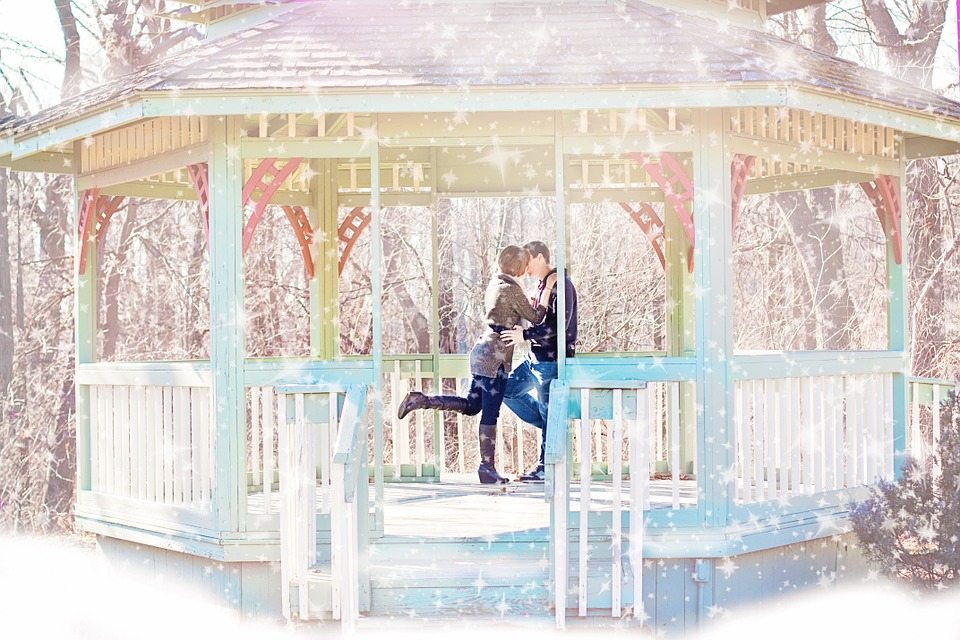Relationships November 5, 2016


As a twenty-something woman, you may be a bit more obsessed than you’d like with that one guy who hasn’t texted back. Maybe you met on Tinder, at a bar or even at the supermarket. Either way, you got his number, went on a wonderful date and felt an instant connection … so you took him home.
Now, it’s the next morning and you can’t stop overthinking your relationship. If you guys really clicked, it shouldn’t be just a one night stand, right? The question you really should be asking yourself, though, is a little more complicated. In order to know what move you should make next, you need to decide if you’re feeling lust or love. Here are ENTITY’s top tips for differentiating the two – and what you should do in either case.
Although feeling a “connection” with someone might sound like having romantic feelings for them, you can “connect” with people on varying levels – mental, physical or even both. This difference in levels is the main difference between lust and love.
READ MORE: Why It’s Important to Marry Someone With the Same Values As You
According to Judith Orloff, M.D., “Pure lust is based solely on physical attraction and fantasy and often dissipates when the ‘real person’ surfaces.” And we don’t mean “real person” in terms of seeing him in the morning light instead of a dim-lit bar. Instead, knowing someone as a “real person” involves experiencing his entire identity, like his love of politics or nasty habit of loudly burping after every meal. Need some more “lust” flashing lights to look out for? Psychology Today lists several signs, including:
How is in being in love different? First of all, while falling in love depends on each person and situation, it usually takes longer than one date. Also, Psychology Today lists several different signs to look out for, including:
Lust, then, often functions at the surface-level and can burn out quickly because you’re only interested in what her or she can (often physically) do for you. Love, on the other hand, involves getting to know that man or woman on a deeper level and becoming invested in his or her life.
READ MORE: 4 Reasons to Date a Sensitive Man
By now, you’ve hopefully figured out whether you’re feeling lust or love. The next step is deciding what to do about it – and you have plenty of options.
Let’s say that you haven’t brought the guy back to your place yet. Maybe you’ve got his number and are just pulling on your most elegant dress for a fancy dinner date. If, by the end of the date, you feel like there’s a chance for love, you may want to just kiss him goodbye. Studies have shown that having sex on the first date can result in lower relationship satisfaction, communication and stability. As a result, if you want to find your soulmate, having sex early-on might actually harm your search.
Perhaps, though, you’ve already slept with him. That doesn’t necessarily mean your lust won’t turn into love. According to Dr. Helen Fisher, who is well-known for her research on romantic love, falling in love often follows three stages: lust, attraction and deep love. Staying patient and encouraging more “love-based” activities (like getting to know your partner or meeting their friends and family) could turn you into the ultimate couple.
And, of course, there’s the third option: keeping the relationship going but at a casual, sexual level. Although plenty of controversy exists over whether women can keep sex “casual” in the first place, Bustle offers several tips to stay safe, sane and sexually satisfied. Some of the highlights?
If you discover you’re in lust and don’t desire anything more (aka love) from that cute guy from the bar, that’s OK! Just make sure you stay honest with yourself and with him. And if you’re in lust … but realize you want love instead? You also have the power to end the relationship.
Regardless of what decision you make, know that each relationship – whether based solely off of lust, love or a transition from one to the other – adds to your life experiences and self-understanding. Maybe the best course of action is taking Dr. Fran Walfish’s advice and “try[ing] people on the way that you find an outfit to find the right fit.”
READ MORE: The Benefits of Having a Long-Term Partner